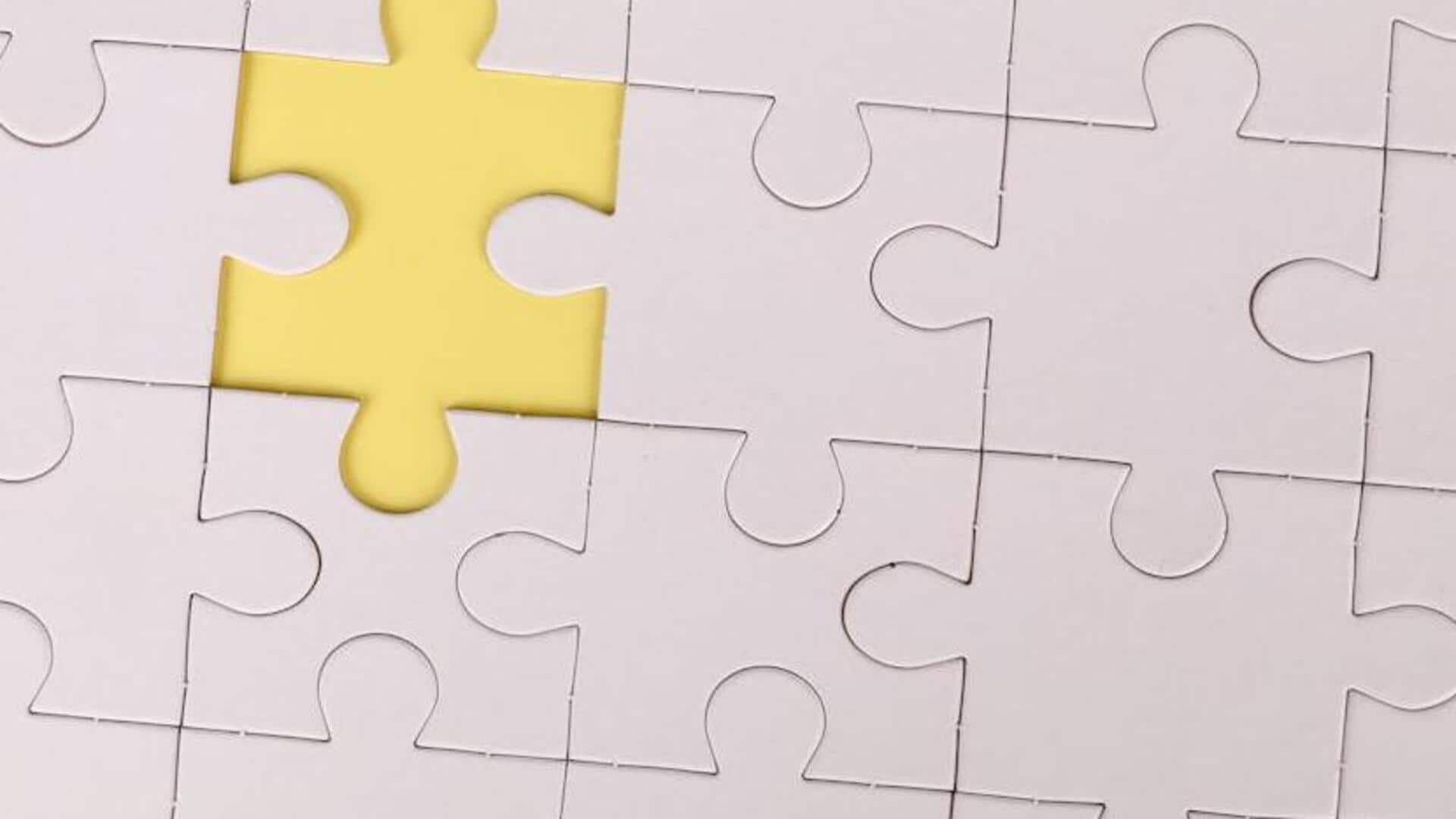
Engaging mindfulness with puzzle-solving sessions
What's the story
The art of puzzle-solving isn't just a fun pastime; it's a workout for your brain! Indulging in puzzle-solving sessions fosters mindfulness as you concentrate on the task at hand, thereby boosting your cognitive abilities and melting away stress. Read on to discover how adding puzzles to your daily routine can be a powerful form of self-care.
Cognitive boost
The benefits of regular puzzle-solving
Regularly solving puzzles can enhance your memory, improve problem-solving skills, and even help prevent dementia and Alzheimer's disease in older adults. This is because when you solve a puzzle, you are exercising both the left and right hemispheres of your brain, which strengthens mental speed and thought processes. Even spending a mere fifteen minutes a day on puzzles can be beneficial.
Routine setting
Creating a mindful puzzle routine
To truly benefit from incorporating puzzle-solving into your self-care routine, set aside a special time each day for this activity. Early mornings or late evenings, when the world is still, are ideal for fostering deep focus. Choose a comfortable spot with good lighting and minimal distractions. This not only enhances relaxation but also establishes a sense of ritual, fostering consistency in your practice.
Puzzle selection
Choosing the right puzzles for you
There are plenty of puzzles available on the market, ranging from easy jigsaw puzzles to more challenging Sudoku or crosswords. If you're new to puzzles, start with something easy and work your way up as you get the hang of it. Remember, the goal is to have fun and be challenged, not to feel stressed or frustrated.
Digital puzzles
Incorporating technology in puzzle-solving
Today's digital age offers a world of puzzles at your fingertips, thanks to a multitude of apps. Convenience is the name of the game with these digital options. You can take your puzzle anywhere, making it a mindful activity on the go. Waiting for an appointment or commuting? You can enjoy them. Many apps also track your progress, providing insights into cognitive improvements or identifying areas for further development.
Social puzzling
Group puzzling for enhanced social interaction
Though often perceived as a solitary pursuit, puzzle-solving can also be a social experience. By inviting friends or family to join in, you not only build stronger connections but also foster skills in verbal communication and teamwork. It turns puzzle-solving into a social event, combining mindfulness with the warmth of shared experiences for twice the enjoyment.